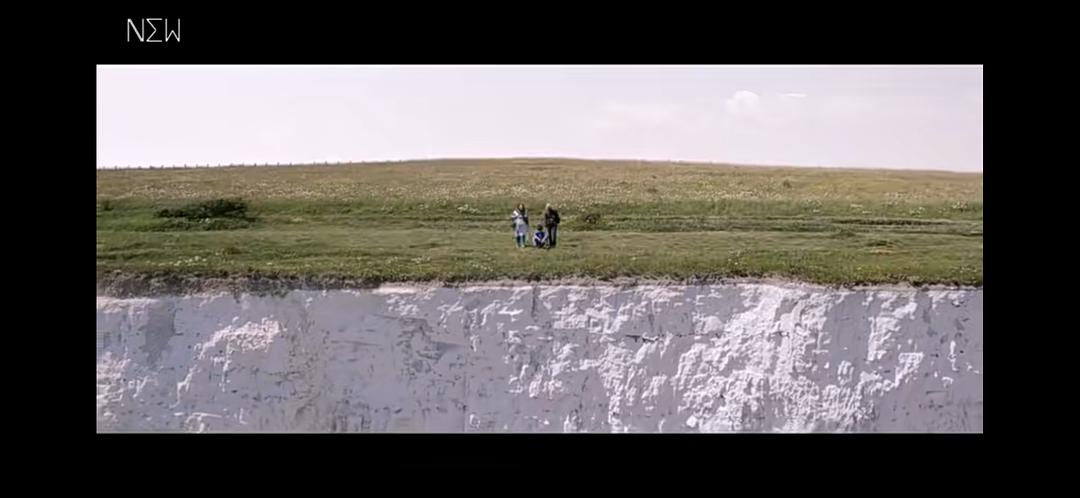1、乔安娜·斯坎伦,娜塔莉·理查德,纳赛尔·米马齐亚 主演的电影《爱的后事》来自哪个地区?
爱奇艺网友:电影《爱的后事》来自于英国地区。
2、《爱的后事》是什么时候上映/什么时候开播的?
本片于2020年在英国上映,《爱的后事》上映后赢得众多观众的喜爱,网友总评分高达2169分,《爱的后事》具体上映细节以及票房可以去百度百科查一查。
3、电影《爱的后事》值得观看吗?
《爱的后事》总评分2169。月点击量891次,是值得一看的剧情片。
4、《爱的后事》都有哪些演员,什么时候上映的?
答:《爱的后事》是2020-09-11上映的剧情片,由影星乔安娜·斯坎伦,娜塔莉·理查德,纳赛尔·米马齐亚主演。由导演阿利姆·汗携幕后团队制作。
5、《爱的后事》讲述的是什么故事?
答:剧情片电影《爱的后事》是著名演员乔安娜 代表作,《爱的后事》免费完整版2020年在英国隆重上映,希望你能喜欢爱的后事电影,爱的后事剧情:玛莉与丈夫是住在英国的传统穆斯林,恩爱相依四十载,毫无预警之下,丈夫突然离世曾经他们拥有一个孩子,有过一家三口的日子,如今只剩她孤身一人。伤痛尚未消失,玛莉竟意外发现了陌生女子的照片及暧昧对话纪录。循线前往一海之隔、相距三十四公里远的法国加莱,在那里,她找到了另一个与丈夫同居多年的法国女子,而对方不仅不认得玛莉,甚至不晓得她们共有的男人已不在人世。阴错阳差,玛莉成了对方的帮佣,不仅踏进了对方的小屋,也进入了丈夫的秘密生活。
英国女人玛丽十四岁就与丈夫相爱,n为了他戴上穆斯林头巾,n学习家乡的方言,n短别,看同一轮月亮遥寄相思,n死别,反复听他的电话留言……nn但这样就真的了解身边最亲近的人吗?nn丈夫悄无声息突然离世,玛丽整理遗物才发现他有女人,追到女人家才发现有私生子,十多岁了。n他是那么好,那么虔诚的穆斯林,n却并不妨碍他常年经营另一头远在法国的家,有一个同性恋青春期儿子,跟同事苟且的情人。n“你不介意他有妻子吗?”n“他都没在意,我为什么要介意?”nn玛丽的心碎,见于天花板裂开的幻视,感受于被潮起潮落冲刷、浪花拍打。nn两个女人一个孩子,连追问一个解释的机会都没有。nn不合法的家庭关系,带给孩子父亲缺席、身份认同困惑等问题,玛丽的善意亦是对丈夫的爱,让她赠予孩子-无辜的人应得的“父亲”遗物。n人性复杂、隐匿、多面。

总有一些话 来不及说了 总有一个人 是心口的朱砂
想起那些话 那些傻 眼泪落下 只留一句 你现在好吗
如果爱忘了 泪不想落下 那些幸福啊 让她替我到达
如果爱懂了 承诺的代价 不能给我的 请完整给她
如果爱忘了 泪不想落下那些幸福啊 让她替我到达
如果爱懂了 承诺的代价不能给我的 请完整给她。
In After Love, Mary Hussain (Joanna Scanlan), who converted to Islam when she married and is now in her early 60s, lives quietly with her husband Ahmed. Following his unexpected death, she suddenly finds herself a widow. A day after the burial, she discovers that Ahmed had a secret life just 21 miles away from their Dover home, across the Channel in Calais. The shocking discovery compels her to go there to find out more, and as she grapples with her shattered sense of identity, her search for understanding has surprising consequences.
Identity
-As British- Pakistani director Aleem Khan’s debut feature, after love depicted a very unusual heroine -- a white Muslim, Mary, who suffered her husband’s sudden demise after a forty-years marriage.
In Stephen Frears’ my beautiful launderette, and Gurinder Chadha’s blinded by the light, we have experienced the dilemma and obstacles the Pakistan immigrants faced in the process of integrating the western culture and community. But this time, Aleem Khan decided to tell the story from the opposite perspective. From the very first scenes of the funeral, we can perceive the discrepancy between Mary and the other Muslim women in terms of how they react to the death of Ahmed, her husband and how familiar they are of Islam traditions.
The centric heroine was accepted by the bunch of Muslims but also isolated. We can see that Mary sits there in white robe surrounded by a bunch of Pakistan women in black robes. She is crying in silence, but the others are sobbing loudly. The director attempted to create a structure in which the protagonist avoided to involve herself in crowd. She speaks Urdu, she behaves as an Islamic woman, but she is white. In this way, the key factor which distinguished Mary from other people is not religion, language, or cultural habits but the emotional behaviors.
As an Islamic woman, she must conventionalize to her husband and totally trust him, but as a British woman, she felt broken after that she found out the betrayal of her husband in the past decade.
This question leads to another issue about modernity.
Post- Modernity:
In the whole British cinema history, have we never spectated a character like Mary, who never suspected her husband having an affair and never hesitated herself her Muslim religion, but in the end, the cliff rock cracked just like her internal world.
Ahmed’s departure reveals so many issues that Mary has never been occurred to. She starts to reflect herself as a wife, and a former mother whose baby died by illness.
Apparently, housewives always struggle with the truth of that their husbands tried to cheat on them. Modern communication devices facilitated us to maintain a connection more easily but at the same time make it harder to face the most obvious truth.
We prefer to establish a stable connection by our affections with other individuals, but we choose not to take the block down just like Solomon’s mother, Genevie did.
In France, Genevie is a mother of a son, she is an independent woman who supports herself to buy a house. But on the other hand, she is the third person of a steady marriage.
Solomon, who is France and Pakistani at the same time he is a sixteen-year-old teenager and is gay.
Everyone in this social structure is leading a double life by themselves. In other words, they choose to hide themselves because they don’t want to break the rules that they set for themselves.
Social Realism:
Above all the British cinema history, it is very difficult to clarify which genre this feature belongs to. There are not so much suffocating moments or the struggling proceeds in term of religion, sexual orientation, ethic in any of these scenes. In after love, the director only attempted to emphasize the internal mind of a woman after trauma both physically and spiritually and how she dealt with her past which she seemed to be similar but not have any acquaintance at all. When her belief turned out to be nothing than her willingness, how she maintains her religion. It is about How she coincides herself to her former husband’s undeniable secret and the unchangeable truth as human being.
《爱的后事》是一部有着奇怪价值观的电影,很容易被它“女性主义”的表象所迷惑。我们不解的是,为何到最后妻子与情人两相和解了?留下一堆烂摊子(未亡人、情人与私生子)明明是那个死去的男人,而最终他却以好丈夫和好父亲的形象盖棺定论,并且促成了妻子与情人间的“旷世”奇缘。
我们只能认为这是从男性导演视角出发的一厢情愿。导演只能看见一个完满的结局,于是将情节往这个方向助推,他始终无法认识到分享爱情这类事情几乎不会在女性身上能发生。在妻子与情人之间,迂回着带有距离的礼节,而没有发展成剧烈冲突。导演似乎有意回避出轨在道德上的恶劣。
结局是不可接受的,这不是童话故事,而是残酷的现实。两个女人在感情中都受到欺骗,承受着铭心的伤痛,那位肇事者却安然地躺在坟墓里,享受着来自尘世的怀恋。应该挖出来“鞭尸”的不正是这个丈夫吗?既然他曾与妻子如此相爱,为何又会出轨呢?他又是如何巧妙地回旋在两个家庭之间,而不被人发现……这些极为重要的信息都被回避了,剩下两位女性自我感动。
男性虽然缺席了,但女性的动作与心理依然围绕着他展开。这提供了对现实的部分阐释,但没能更加深入进去。事实上,导演打着“女性主义”的幌子,做的是男性中心主义的实事。我们不该被这类不真诚的电影感动:它巧编名目,让观众陷于共情的幻觉之中。
男人都爱做这样的梦吧,所有的人都爱他,不仅两个女人爱他,甚至从未尽过父亲责任的儿子也爱他,在他死后所有的人都想保存他的声音和味道。谁给男人的自信?
一个终生深爱自已的妻子,一个明知自己有妻子却甘心只拥有一半的自己并为自己生儿育女还如此独立的情人。两边在他生前各自安好,在他死后知道真相后却能像一家人一样相亲相爱,真是可笑!